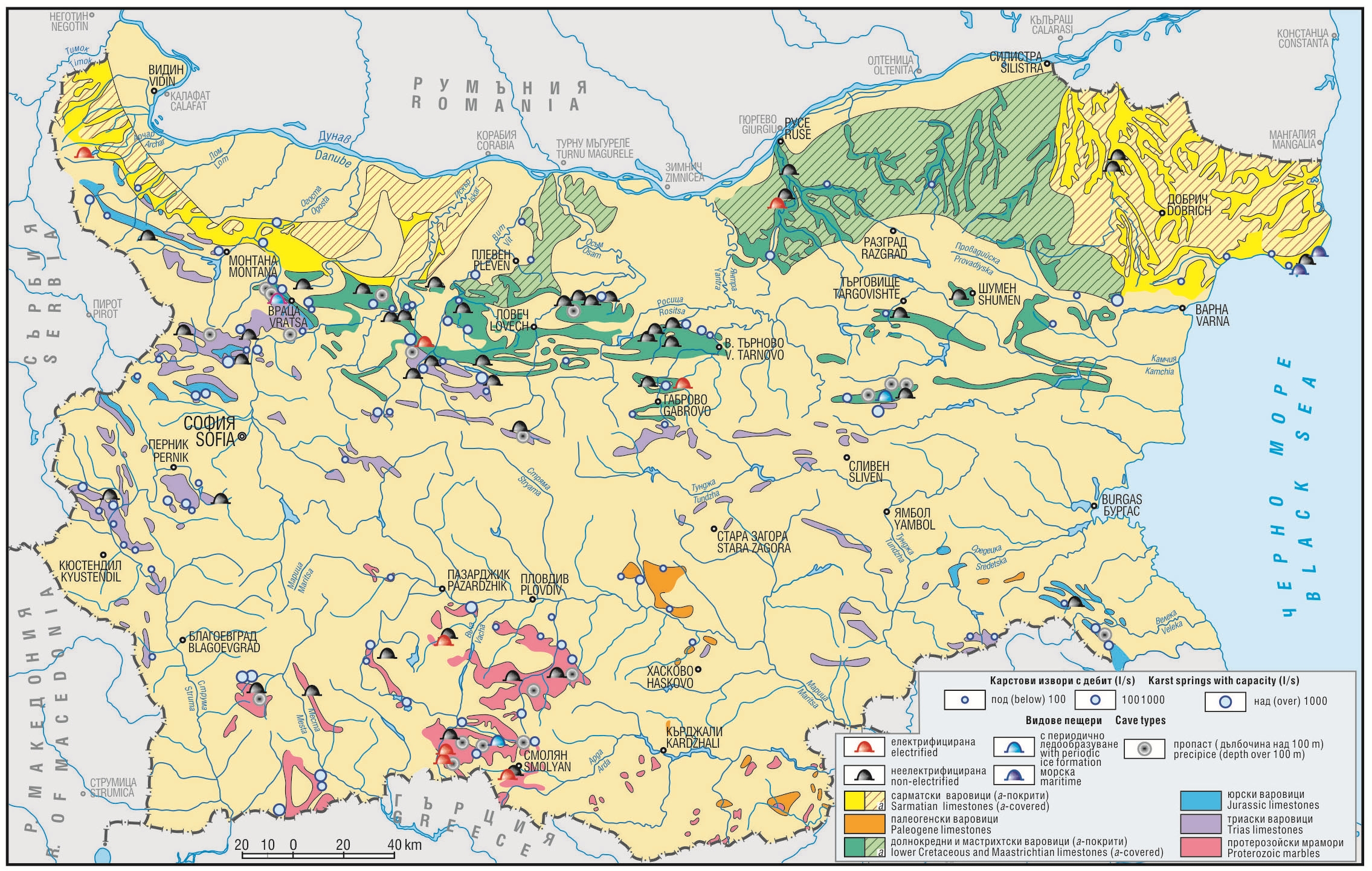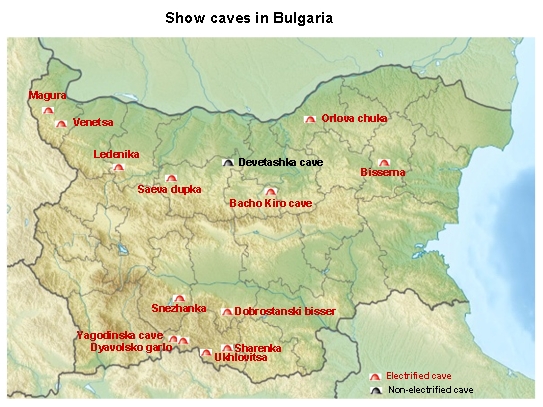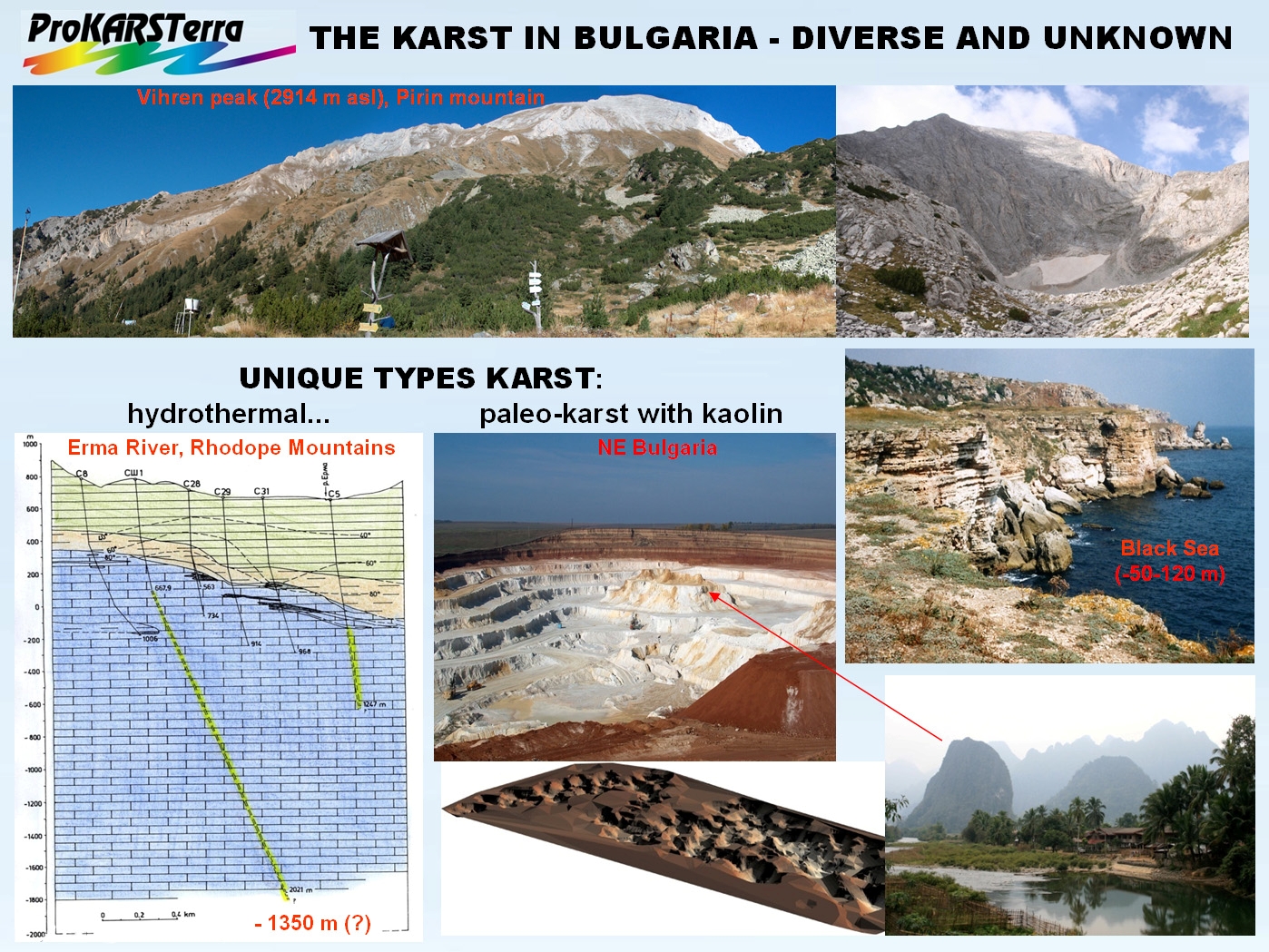Karst in Bulgaria
Karst is a world natural phenomenon with its specifics makes it highly vulnerable to natural and anthropogenic impacts, especially against the deepening impact of global change.

Distribution of karst in Bulgaria (by V. Popov, 2002)
Bulgaria is among the countries with the largest relative share of karst territories - approx. 25%, with more than 6,000 caves. But the Bulgarian karst is also unique with its diversity: a unique combination of morphogenetic types of karst with a large spatial range (2914 m at Vihren Peak in Pirin mountain to -120 m on the North Black Sea coast). It has also a time interval of development in a rich suite of rock formations (predominantly carbonate ones, namely limestone, dolomite, marble) with a wide range of age (from the Proterozoic Age to Holocene with modern karstolites - limestone tuffes and travertines).

The diversity is also added by the occurrences of hydrothermal karst (caverns with a depth of more than 1350 m, established by structural drillings in the region of Erma River, Western Rhodopes) and by the discoveries of buried paleo-karst relief with some of the biggest kaolin deposits with karst genesis (Northeast Bulgaria). There is no doubt that the karst in Bulgaria is a unique natural laboratory, which has traces of thousands of years of human presence.

However, despite its widespread distribution, karst and its specifics are still poorly known to the Bulgarian public, including the institutions responsible for karst territories and resources. And this inevitably leads to very serious socio-economic problems in karst regions, which are usually among the poorest ones. It is therefore paradoxical that in the 21st century the karst in Bulgaria continues to be "terra incognita".
The main reason for its unsatisfactory condition the lack of a specialized scientific institution of Karstology in Bulgaria, despite the long-established acute necessity of such one. The lack of a Bulgarian institute of Karstology is somewhat compensated by the Experimental Laboratory of Karstology at NIGGG-BAS, which, despite the limited institutional capacity and resources, develops a rich range of methodologies, models, ideas and initiatives.
